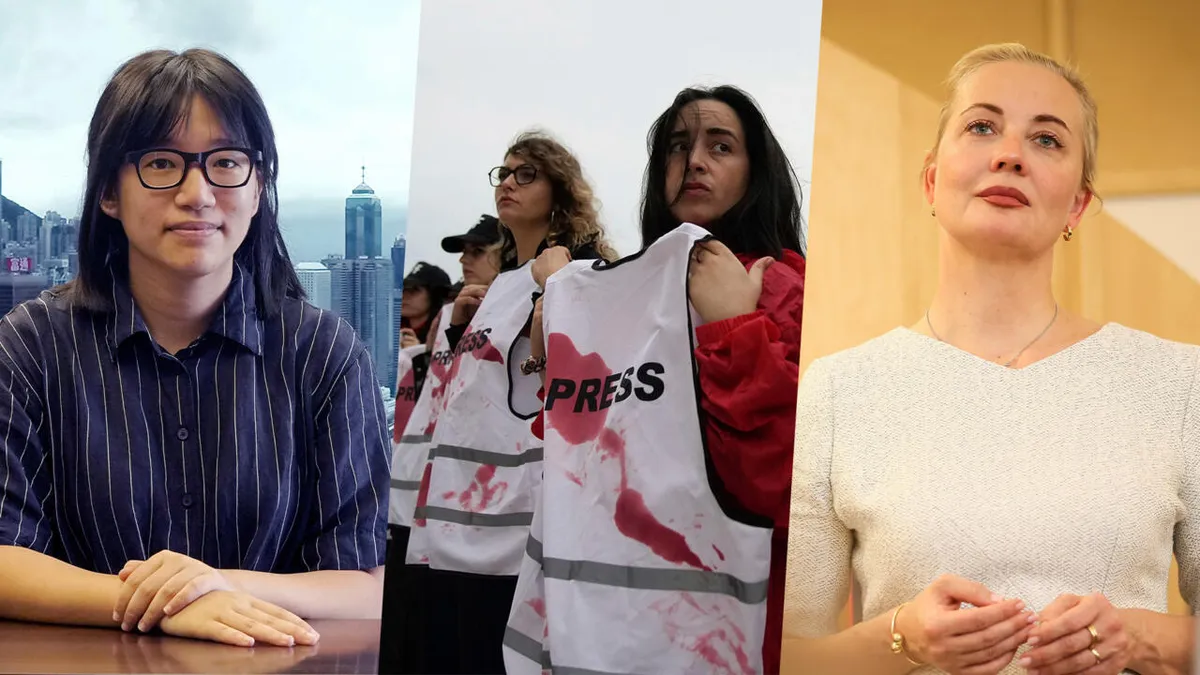
Among the Nobel Peace Prize recipients in history, notable figures such as imprisoned Iranian human rights campaigner Narges Mohammadi (2023), the Dalai Lama (1989), and Martin Luther King Jr. (1964) stand out. Now, former US President Donald Trump has expressed his desire to join this esteemed list. Trump, who claims to have ended seven wars during his presidency, believes he deserves the prestigious accolade, which was awarded to former US President Barack Obama in 2009. However, while Trump's quest for the prize has garnered significant media attention, the clarity of his contributions to global peace remains questionable.
At the onset of his second term, Trump made headlines with controversial threats to annex Greenland and seize control of the Panama Canal, alongside slashing international aid and implementing mass deportations of immigrants from the US. A study published in the Lancet medical journal in July warned that his decision to eliminate USAID could potentially lead to the deaths of up to 14 million individuals worldwide. These policies starkly contrast with the objectives of the Nobel Peace Prize, which aims to honor those who foster fraternity among nations.
This year, the Nobel Peace Prize will be awarded on Friday in Oslo, with ten candidates competing for this honor, including humanitarian organizations, political figures, and civil society leaders. One of the primary contenders is the Emergency Response Rooms (ERRs), a network of over 700 community-based organizations in Sudan. These groups provide essential services typically expected of government entities, including medical assistance, communal kitchens, and evacuations amid a devastating two-year conflict between the army and the paramilitary Rapid Support Forces.
The ERRs not only serve a critical humanitarian role but also document the ongoing conflict, supplying vital information to international media outlets. Awarding the Nobel Peace Prize to the ERRs would spotlight the courage of these volunteers operating in a region experiencing what the UN has termed "the world's largest humanitarian crisis," having already displaced 13 million people.
Another prominent contender is Volodymyr Zelensky, the President of Ukraine. Since the Russian invasion, Zelensky has emerged as a symbol of resistance and resilience, making him a credible candidate for the Nobel Peace Prize. With peace negotiations between Kyiv and Moscow stalled, recognizing Zelensky could rally international support for Ukraine during this tumultuous period.
The Nobel Committee has previously honored the defense of a free press, awarding the prize in 2021 to Philippine journalist Maria Ressa and Dmitry Muratov from the independent Russian newspaper Novaya Gazeta. Given the ongoing threats to journalists covering conflicts, especially in the Gaza Strip, it would be fitting to honor another journalist this year. Reporters Without Borders (RSF) reported that at least 210 journalists have lost their lives in the Palestinian enclave due to Israeli military actions over the past two years.
Mahrang Baloch, a prominent human rights activist from Pakistan, has dedicated her life to advocating for the Baloch ethnic minority in Balochistan. Since her imprisonment in March on charges of terrorism, sedition, and murder, her activism has only gained international attention. At just 30 years old and a trained surgeon, Baloch could potentially become the second Pakistani woman to receive the Nobel Peace Prize, following Malala Yousafzai, the youngest laureate.
The International Criminal Court (ICC) may also be a contender for the Nobel Peace Prize, especially given its current challenges with US sanctions. These sanctions were imposed in response to the court's investigation into alleged war crimes by US forces and its arrest warrants against Israeli officials. Established in 2002, the ICC has prosecuted numerous leaders for war crimes and genocide, and its recognition could symbolize global commitment to justice and accountability.
Yulia Navalnaya, the widow of Russian opposition leader Alexei Navalny, who died under suspicious circumstances in February 2024, is another strong candidate. Since her husband's death, she has vowed to continue his activism and has even launched a new television channel aimed at countering Kremlin propaganda. Awarding her the Nobel Peace Prize could draw international attention to the plight of Russian civil society amid heightened repression since the invasion of Ukraine.
Chow Hang-tung, a prominent lawyer and human rights activist in Hong Kong, has been a fierce opponent of the Chinese authorities. As the former vice-president of the Hong Kong Alliance, she played a crucial role in organizing vigils for the Tiananmen Square massacre. However, under increasing pressure from Beijing, her organization dissolved in 2021, and she has faced numerous arrests. If awarded the Nobel Prize, Chow's recognition could serve as a beacon for those fighting for freedom in Hong Kong.
The Israeli-Palestinian peace organization Standing Together, founded in 2015, is also a contender. With a membership of 5,300, they oppose settlement activities and advocate for equality between Israelis and Palestinians. Following the recent Hamas-led attacks, the organization's activists have been at the forefront of protests against the war in Gaza, emphasizing the importance of humanitarian aid to the region.
Sheikh Mohammed bin Abdulrahman al-Thani, Qatar's Prime Minister and Minister of Foreign Affairs, has played a pivotal role in mediating various conflicts, including a ceasefire between Hamas and Israel. Despite the controversies surrounding Qatar's geopolitical stance and human rights record, recognizing al-Thani with the Nobel Peace Prize could underscore the significance of regional actors in global peace efforts.
While there has been speculation about the possibility of awarding the NATO alliance the Nobel Peace Prize, it remains unlikely. Such a decision could reinforce perceptions of the Nobel Committee's Western bias, which has led to a more inclusive approach in recent years. Nonetheless, recognizing NATO could send a message about the complexities of defense spending and its implications for peace.
As the Nobel Peace Prize approaches, the world watches closely to see which candidate will be honored for their contributions to peace and humanitarian efforts. Each contender represents a unique facet of the ongoing struggle for human rights, justice, and global stability.